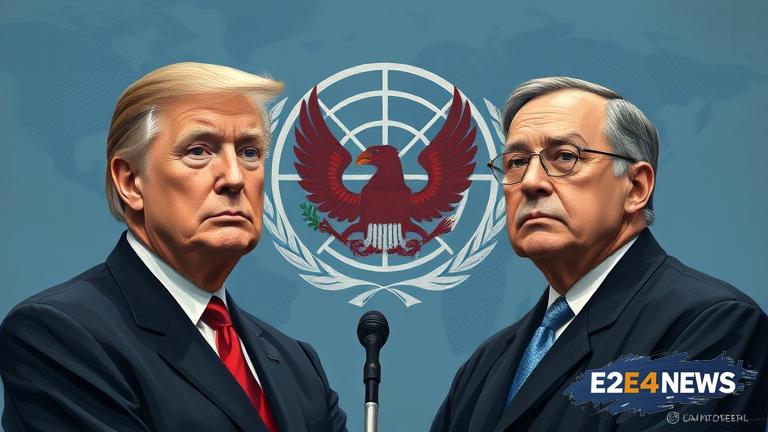The United States has taken a drastic step by imposing sanctions on judges of the International Criminal Court (ICC), a move that has been widely criticized by the international community. The ICC, which is based in The Hague, Netherlands, is an independent judicial body that prosecutes individuals for war crimes, crimes against humanity, and genocide. The US sanctions, which were announced recently, target several ICC judges, including the court’s president, Chile Eboe-Osuji. The sanctions are a response to the ICC’s investigation into alleged war crimes committed by US military personnel in Afghanistan. The US has long been opposed to the ICC’s jurisdiction over its citizens, and has argued that the court is biased against the US and its allies. However, the ICC has maintained that its investigations are impartial and based on evidence. The International Bar Association (IBA) has slammed the US sanctions, calling them a ‘serious attack’ on the rule of law and the independence of the judiciary. The IBA has also expressed concern that the sanctions will undermine the ability of the ICC to carry out its mandate to prosecute international crimes. The US sanctions have also been criticized by other countries, including the UK, France, and Germany, which have expressed support for the ICC and its mission. The European Union has also condemned the US sanctions, stating that they are ‘unacceptable’ and ‘counterproductive’. The ICC has also faced criticism from some African countries, which have accused the court of targeting African leaders and ignoring crimes committed by Western powers. However, the ICC has maintained that its investigations are based on evidence and are not motivated by political considerations. The US sanctions are the latest development in a long-running dispute between the US and the ICC. In 2018, the US threatened to impose sanctions on ICC judges if they proceeded with an investigation into alleged war crimes committed by US military personnel in Afghanistan. The ICC has also been criticized by some for its slow pace of investigations and prosecutions, as well as its limited resources. Despite these challenges, the ICC remains an important institution for promoting accountability for international crimes and upholding the rule of law. The US sanctions are likely to have significant implications for the ICC and its ability to carry out its mandate. The sanctions may also have broader implications for international justice and the rule of law, and may undermine the ability of other international courts and tribunals to carry out their work. The international community will be watching closely to see how the situation develops and how the ICC responds to the US sanctions. The ICC has stated that it will continue to carry out its investigations and prosecutions, despite the US sanctions. The court has also called on the US to respect its independence and impartiality, and to refrain from interfering with its work. The US sanctions are a significant challenge to the ICC and its mission, but the court remains committed to upholding the rule of law and promoting accountability for international crimes. The international community must continue to support the ICC and its work, and to promote the rule of law and accountability for international crimes. The US sanctions are a setback for international justice, but they will not deter the ICC from carrying out its mandate. The ICC will continue to investigate and prosecute international crimes, and to promote accountability and the rule of law. The US sanctions are a challenge to the international community, and a test of its commitment to upholding the rule of law and promoting accountability for international crimes.
